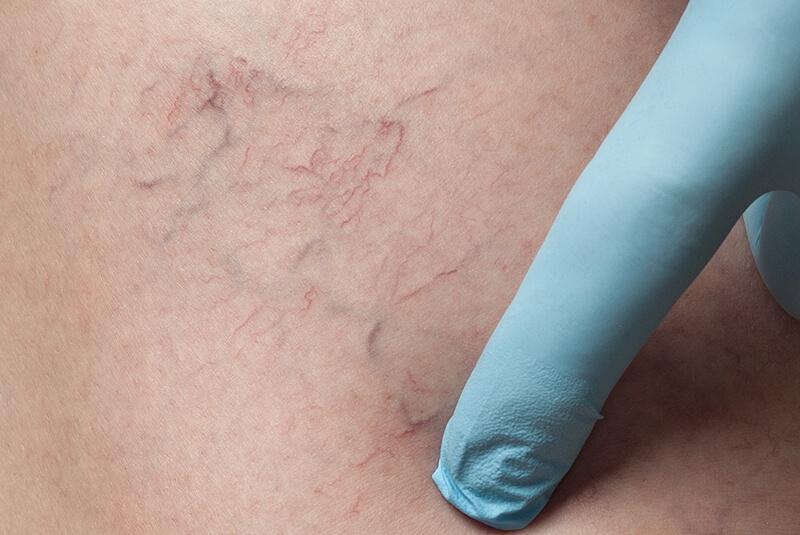Varicose Veins Treatment in Turkey: A Comprehensive Guide
Varicose veins are a common condition that affect many people in the world. They are caused by damaged or weakened valves in the veins, which can lead to the accumulation of blood and the formation of twisted, swollen veins.
Symptoms of varicose veins include aching, swelling, and discoloration of the affected area. In this article, we will provide a comprehensive guide to the different types of varicose veins treatment available in Turkey, as well as information on how to choose the right treatment for you and what to expect during recovery and aftercare.

Types of Varicose Veins Treatment in Turkey:
- Sclerotherapy: This is a minimally invasive procedure that involves injecting a solution into the affected vein, which causes it to collapse and disappear. Pros include that it is relatively painless and has a high success rate. Cons include that it may require multiple sessions and there is a risk of pigmentation changes.
- Radiofrequency: The system uses a generator device that generates radio waves and needles transmitted to the tissue. Without requiring special preparation or anaesthesia, the needle is inserted into the varicose veins under a magnifying glass at intervals of approximately 1 mm and pulses are made with the help of a pedal. Thus, the varicose area is treated by intermittent needle insertion. The treatment is usually painless. An average session lasts 10-15 minutes, and during this time, 200-600 pulses are applied to the varicose area, and roughly 40-80 cm long capillary varicose veins are treated.
- Endovenous laser therapy: This is a procedure that uses laser energy to seal the affected vein, which causes it to collapse and disappear. Pros include that it is less invasive than surgery, has a high success rate, and has minimal downtime. Cons include that it may be more painful than sclerotherapy and there is a risk of pigmentation changes.
- Microphlebectomy: This is a surgical procedure that involves removing the affected vein through small incisions. Pros include that it is highly effective and has minimal scarring. Cons include that it requires general anesthesia and there is a risk of complications.
Comparison of the different treatment options: Each of these treatment options has its own pros and cons and the best one for you will depend on your specific condition, as well as your personal preferences. It is important to consult with a specialist to determine the best treatment option for you.
Choosing the Right Treatment for You:
When choosing a treatment option, it is important to consider factors such as the severity of your condition, your overall health, and your personal preferences. Insurance coverage can also play a role in the decision-making process. It is important to consult with a specialist to determine the best treatment option for you.
Recovery and Aftercare:
Recovery time can vary depending on the type of treatment you choose. It is important to follow aftercare instructions provided by your doctor to ensure the best possible outcome. Possible complications include pigmentation changes, blood clots, and infection. To prevent these complications, it is important to follow aftercare instructions and maintain a healthy lifestyle.
Conclusion:
In conclusion, there are several treatment options available. It is important to consult with a specialist to determine the best treatment option for you. Recovery and aftercare can vary depending on the type of treatment, and it is important to follow aftercare instructions to ensure the best possible outcome.
FAQs:
What are varicose veins?
Varicose veins are twisted, swollen veins that can be seen just under the skin.
What are the causes of varicose veins?
Varicose veins are caused by damaged or weakened valves in the veins.
What are the symptoms of varicose veins?
Symptoms of varicose veins include aching, swelling, and discoloration of the affected area.
What are the different types of varicose veins treatment available in Turkey?
The different types of varicose veins treatment available in Turkey are Sclerotherapy, Radiofrequency, Endovenous laser therapy and Microphlebectomy.
How do I choose the right treatment for me?
It is important to consult with a specialist to determine the best treatment option for you.
How long is the recovery time after varicose veins treatment?
Recovery time can vary depending on the type of treatment you choose, but it typically ranges from a few days to a couple of weeks.
Are there any possible complications from varicose veins treatment?
Possible complications include pigmentation changes, blood clots, and infection.
How can I prevent varicose veins from recurring?
To prevent varicose veins from recurring, it is important to maintain a healthy lifestyle, including regular exercise and maintaining a healthy weight.
What should I do if I have varicose veins?
If you have varicose veins, it is important to consult with a specialist to determine the best treatment option for you and to follow aftercare instructions to ensure the best possible outcome.
